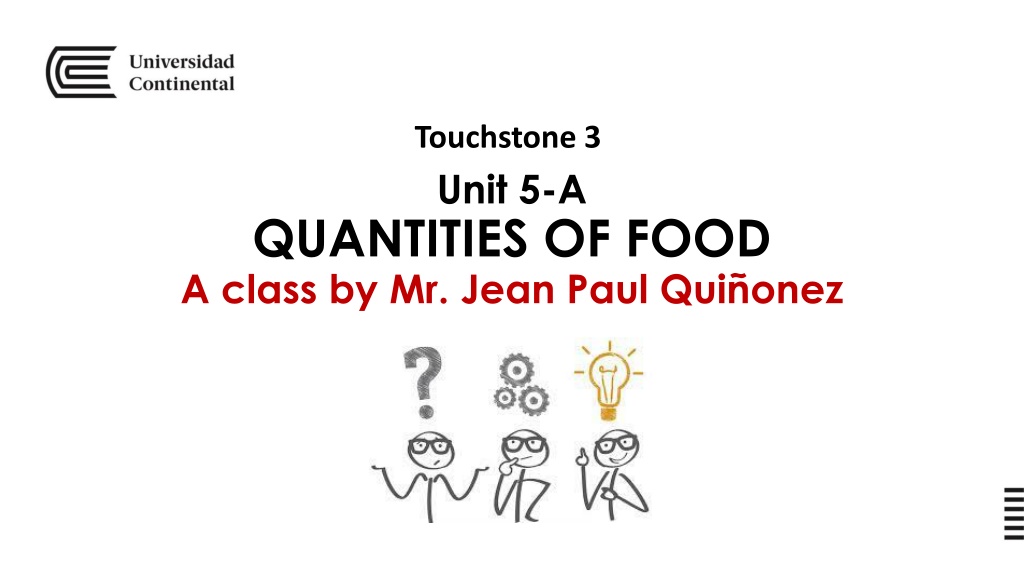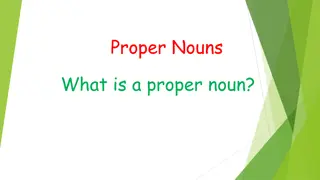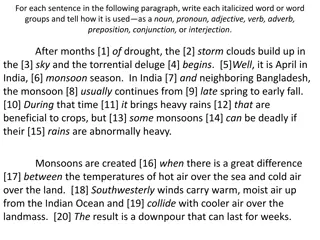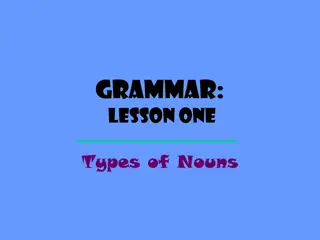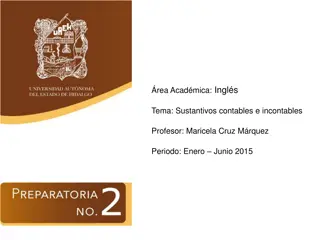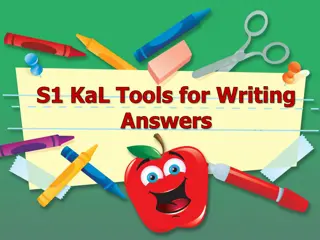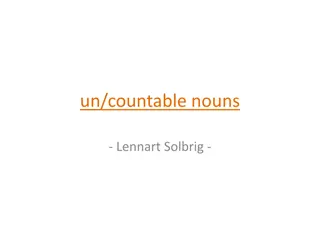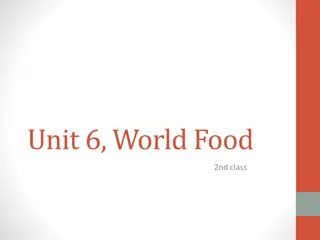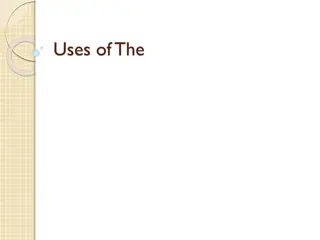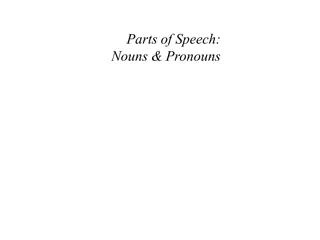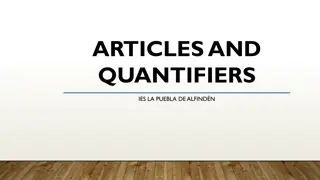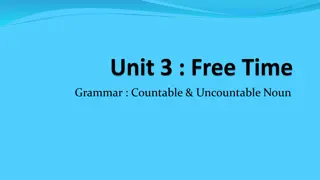Understanding Quantities of Food: Countable vs. Uncountable Nouns
Exploring countable and uncountable nouns in relation to food quantities. Learn how to differentiate them, use adverbs for specific quantities, and understand the nuances of some, any, few, and fewer in food-related contexts.
Download Presentation

Please find below an Image/Link to download the presentation.
The content on the website is provided AS IS for your information and personal use only. It may not be sold, licensed, or shared on other websites without obtaining consent from the author. Download presentation by click this link. If you encounter any issues during the download, it is possible that the publisher has removed the file from their server.
E N D
Presentation Transcript
Touchstone 3 Unit 5-A QUANTITIES OF FOOD A class by Mr. Jean Paul Qui onez
FOOD / FOODS Do you need any bananas for the dessert you are preparing? No, I don t need bananas, I would like some strawberries. We are having some onion soup for dinner tonight. Right, that seems ok. I m going to buy some bagette bread to enjoy it better. I d like to eat a hamburger and drink a glass of soda because I m hungry.
HOWEVER I like the bananas, can you buy a kilo of bananas for tomorrow? My daughter doesn t drink much milk, she just drinks a couple of glasses a week. Countable VS Uncountable Nouns We need to recognize the countable from the uncountable nouns and how to use them
Countable nouns There are 3 potatoes on the table, you can boil them and smash them for lunch. Those are the nouns we can count, from the number 1 until the infinite How many carrots do you need for the jam? I just need one carrot, the rest is apples and pears.
Uncountable nouns We are drinking tea with lemon for our cold. Those are the nouns we cannot count, not even with the number 1. They only exist in the singular form Is there any juice for tomorrow s breakfast? Of course, we have orange juice and papaya juice. Which one do you like more?
If there is no specific quantity, we can use some adverbs QUANTITY ADVERBS There are some onions on the fridge for the omelette, but there are only a few tomatoes, could you go to the grocery store for some more? Sure, I think 3 tomatoes are enough. My father would like to drink some coffee after lunch, but his doctor forbid it. I guess he is going to drink a little herbal tea instead.
ADVERBS FOR COUNTABLE NOUNS We bought some potatoes to fry for our burgers. There are many cupcakes over the shelf, you can take as many as you want. SOME FOR AFFIRMATIVE. ANY FOR NEGATIVE AND QUESTIONS We do not have any apples for the children, let s buy some. There are a few/few meals I can eat now that I am sick. Fewer vegetables are suitable for that dish.
ADVERBS FOR UNCOUNTABLE NOUNS There is some butter you can spread on your bread. I can t find any sugar, do you have any over there? SOME FOR AFFIRMATIVE. ANY FOR NEGATIVE AND QUESTIONS My doctor said I have to consume less red meat. There is a little/very little juice in the jar, I will make some more in a minute. We don t have to eat a lot of salt. That s what the doctor said.
Containers, measures and weights Especially in the case of uncountable nouns, but with all nouns, we can use a container, a specific measure or weight to indicate quantities. I guess we have only a litter of water in the bottle, do you think we should get one litter more? I need two tablespoons of that baking powder for my cake. There are four kilos of that rice in the bag, would they be good for you? I d like a cup of tea and 2 portions of that cake, please.
Uncountable into Countable We have a little flour for preparing the cake. So let s buy 2 kilos of flour to have enough. We are having very little chocolate in the self. Then we need to buy 3 bars so that our guests can try some I d like to eat some gel-o. There are two cups of strawberry gel-o there, you can get one.
